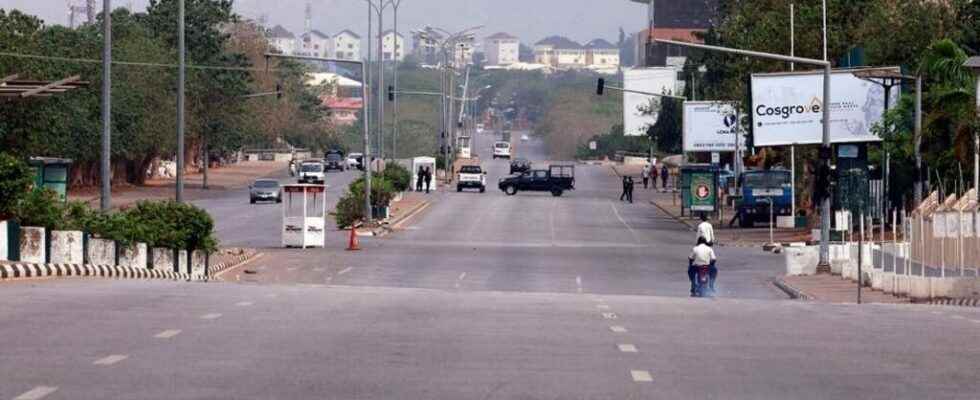They arrived on motorbikes at Zuma Rock, on the border between Abuja and Niger State, on Thursday July 28. These suspected terrorists took the soldiers by surprise, before being repelled with the arrival of reinforcements from the Zuma military base. The Nigerian army did not communicate on the possible number of victims.
With our correspondent in Abuja, Moses Gomis
Bursts of bullets from multiple directions: the soldiers on duty at the Zuma Rock checkpoint were picked up cold by armed men Thursday evening around 8:30 p.m. As this checkpoint is located on the Abuja-Kaduna highway, it is both a key entry and exit point from the Nigerian capital.
Despite heavy fire from the attackers, the soldiers were able to call for reinforcements from the nearby military base. Witnesses indicate that the exchange of fire lasted nearly an hour, before the suspected terrorists abandoned their mission in the face of resistance from the defense forces.
Then resuming their motorcycle, the armed men fell back on shops in districts of the town of Madalla, still in this large suburb of the Nigerian capital. And the criminal group scattered in the countryside, leaving soldiers and the inhabitants of the surrounding area stunned, unaccustomed to a frontal armed attack only a few tens of kilometers from Abuja, the political center and therefore the heart of Nigeria.
Degradation of security in Abuja
On the surface, Abuja is nothing like a threatened citadel. However, in the space of less than a month, three spectacular armed attacks sound like warnings for the 4 million people residing or working in the capital of Nigeria and ECOWAS.
Thursday night’s raid by gunmen on the Zuma Rock military checkpoint came just hours after President Muhammadu Buhari met with Army Chief of Staff Faruk Yahaya. A meeting where the latter explained to the Nigerian head of state a new plan to reduce insecurity in the country.
A week ago, a presidential guard patrol was ambushed by suspected terrorists along the Bwari-Kubwa road, also in Abuja, killing six soldiers. 24 hours earlier, an attack in a community near Kwali shook this town on the outskirts of Abuja. The public high school in this town asked the parents to evacuate their children. In cascade, several other schools in Abuja have also closed. Finally, on July 5, 66 presumed active members of Boko Haram and Iswap escaped from Kuje prison under the explosions and bombs.
For the time being, life continues almost normally and without a curfew in the federal capital. Nevertheless, the army begins to collaborate with the police to control automobile movements as soon as night falls.
